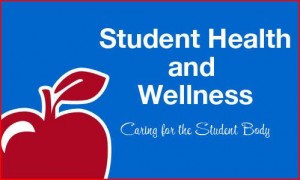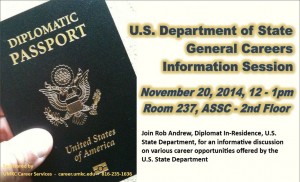Don’t stress about being stressed!
 The first thing I’ll say, just to get it out of the way: there are, essentially, three weeks left of classes. There’s the rest of this week, then Thanksgiving break (which isn’t really a break, right?), then two weeks before finals start.
The first thing I’ll say, just to get it out of the way: there are, essentially, three weeks left of classes. There’s the rest of this week, then Thanksgiving break (which isn’t really a break, right?), then two weeks before finals start.
Second thing I’ll say, just to remind you: everyone stresses a little. It’s normal. It happens. But, as they say, a little stress can go a long way. So, third thing—and most important—it’s possible, even easy, to deal with it before it becomes a major hassle.
Don’t ignore it, though. When I ignore what’s stressing me, I start doing anything but what I should be doing—and that’s tackling it [the project that’s causing me to stress] head-on. So I vacuum. I rearrange furniture or the kitchen cabinets. On the plus side, my apartment is super-clean around this time of year. But, knowing that I’m just delaying the inevitable actually makes me more stressed.
Being able to manage my own outlook on stress is probably the most important thing I can do. Once I figure out what it is I’m ignoring (I mean, I don’t even like to vacuum, so why am I doing it all the time?) I can get down to figuring out why I’m stressed about it and what to do next.
I first make a quick plan for each project looming ahead of me. Start with the end result—the due date—and work backwards from there. Hopefully, I’ve been keeping up with the assignments and readings, so all that I really need to do is to get energized and back on track. Sometimes working on a project for so long leads to apathy or, yes, even loathing towards that project and I just want it to go away. I have to remember that the only way to get it off my back is to make a focused plan to finish it.
My quick plan turns into a handy outline that I can check-off each step, which is very satisfying. If I haven’t been keeping up or if I just need more time to finish some of the readings, at least I know my timeframe and can better plan my approach. Again, keeping the to-do steps small and manageable is immensely helpful when faced with something that looks daunting—that way the long list shrinks quickly!
In addition to getting myself back on track with an outline, I start each day with a workout at Swinney Recreation Center. The 45 minutes all to myself either in the pool or on the elliptical is invigorating and allows me to think about the day ahead—or I can just not think at all, which is also helpful! But be sure to schedule these types of breaks throughout your day. Too often, I start out with a great swim but forget to take a break later, which makes for a long, tiring day. And the more tired I am, the less I want to work on my projects—you know the cycle! So take breaks and get plenty of sleep to recharge your body and your mind. College is all about balance, and that includes making time to take care of yourself and your mental health.
Other quick ways to recharge are easy to do and surprisingly cheap. Take a walk (bundle up, though!), catch your favorite TV show, enjoy a mid-afternoon fruit smoothie, meditate for a half-hour, meet up with friends for appetizers. If you need more ideas (I know, not everyone can vacuum as much as I do!), check out some of the online resources available on the Counseling Center’s website. The MindBody Connection in the Student Success Center can also help you work in some balance and stress relief. The mission of the MindBody Connection is to help students learn skills to manage academic and personal stressors. Some of the services they provide include the relaxation station (with massage chair!), eWave by HeartMath, and Wii Hours of the Day. Playtime is very important to managing stress!
But the key message here is that you, too, can reduce your stress level! By taking care of yourself–mentally and physically–and looking at all projects and papers as smaller parts of a puzzle, these next few weeks will breeze by and you will be well-rested and focused for those final papers, presentations, and exams.


